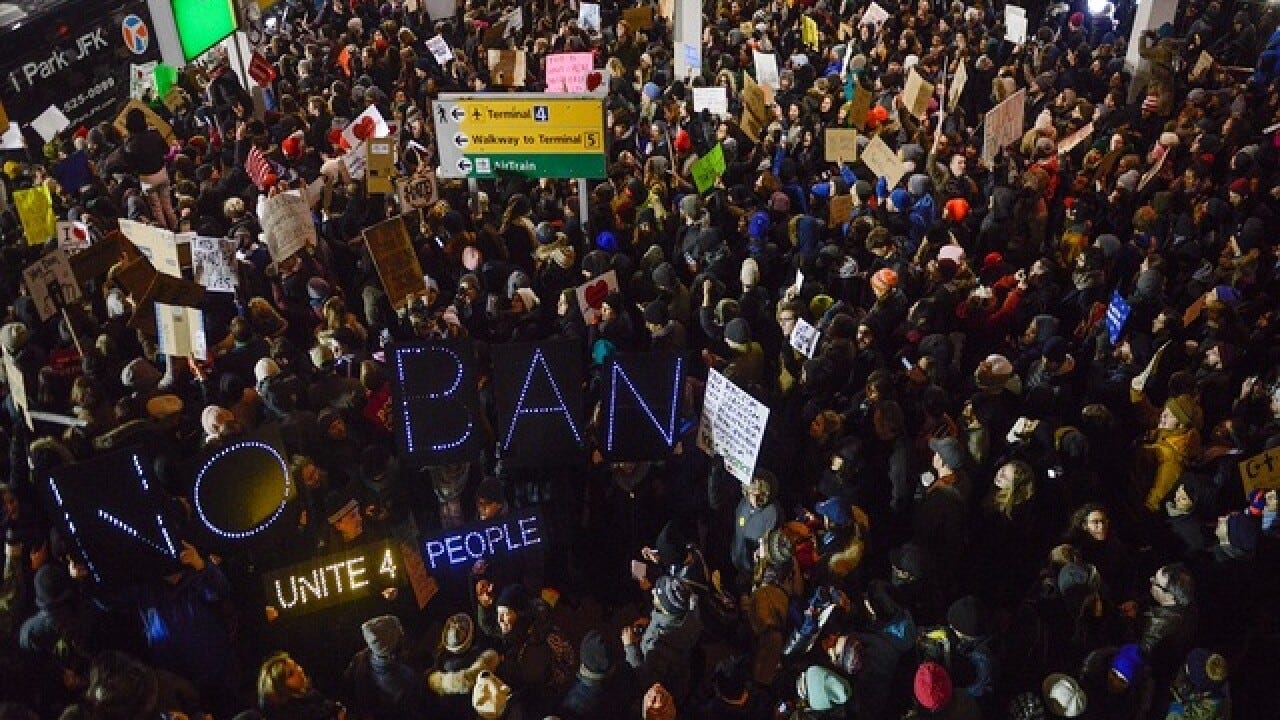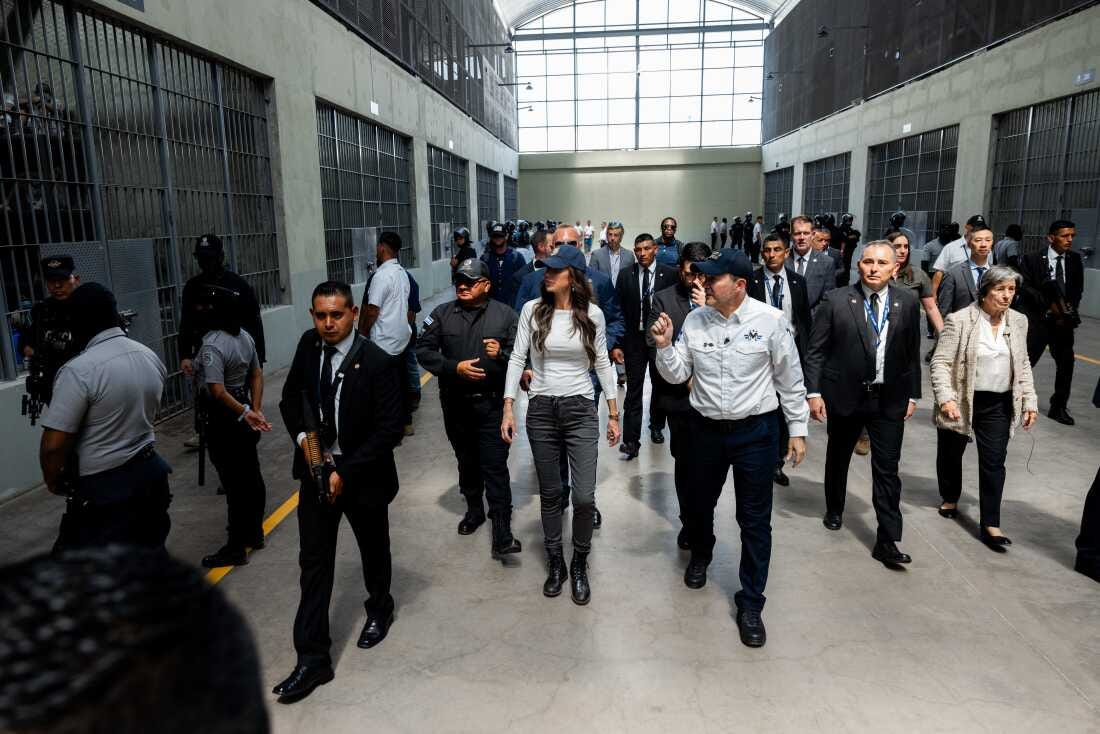“Why aren’t people out in the streets?”
For one thing, they are, but the point’s taken—the left (and “left”) response to Trump’s second term has been rather tepid compared to his first. By this point in Trump’s first term, folks had spontaneously shut down airports across the country, turned out in the hundreds of thousands for the 2017 Women’s March, and organized 600 March for Science protests worldwide.
Is the left cowed into the acquiescence that Democratic strategist James Carville artfully dubbed a “strategic political retreat”? Is it a lack of courage? A reasonable response to political repression? A time for well-deserved self-care? There are thinkpieces aplenty analyzing the springtime of our evidently absent discontent.
What most fail to consider is that we just lived through the largest Palestinian solidarity movement in US history, which itself came on the heels of the George Floyd Rebellion, the largest American social movement ever. The ruling class responded by providing precisely zero major concessions to either. In fact, a bipartisan consensus hardened around law-and-order policing, deportation, and funding Israeli genocide.
As right-wing authoritarianism calcifies, I think we need to take a hard look at our social, political, ideological, and material conditions before calling for kneejerk responses.
I’ll just come out and say it. If public protest has no reasonable chance of changing the actions of the powerful, we should not be calling for protest as such.
To be clear, I’m not by any means suggesting that we stop organized, oppositional political activity. (Who do you think I am, James Carville?) Quite the opposite: fighting back is now more crucial than ever, and is quite literally a matter of life or death. I’m not saying we shouldn’t organize. I’m not saying we shouldn’t be out in the streets. But I do think we need we need to take a long, sober look at whether protest as such is a modality that makes sense given the conditions we find ourselves in.
Let me explain. Protest, even confrontational protest, is an appeal to authority. We are requesting, insisting, or demanding that some public figure take or refrain from carrying out a certain action. This involves, on some level, recognizing the legitimacy of the target of our protest. Demanding that the CEO stop killing the planet implies that he has the right to set corporate policy—after all, he’s the CEO, we just want him to make the right decision. Demanding that the Prime Minister resign implies that somebody replace her as the new Prime Minister. In this way, protest simultaneously combines a degree of coercion directed against specific actors with a degree of consent to the system within which they act. “Speaking truth to power” doesn’t mean that the powerful become powerless. In fact, it kind of requires that they retain the power to meet our demands.
The electoral left is wearing itself with fake filibusters, as if our most pressing need was to speak truth to power and denounce the horrors that the Trump administration is unleashing on immigrant, Black and brown, and trans and queer communities. But we do not have an administration that’s going to be shamed out of its malpractices by public disapproval. They are sending senior members to pose for photo ops in a Salvadoran concentration camp. This isn’t some nefarious plot to expose. It’s a sadistic victory lap.
There’s another tradition of organized resistance that doesn’t depend on convincing, persuading, or strong-arming the powerful into meeting our demands. It’s the tradition of direct action.
Confusingly, “direct action” is sometimes used to describe more-confrontational-than-usual protest. This isn’t exactly correct. Whether you’re holding a sign or smashing a window, if your object is for elites to act or act differently, it could still be described as a protest. Some protests are just less legal or more militant than others. Direct action isn’t a level of militancy. It’s an entirely different relationship to power.
The late anthropologist David Graeber defined direct action as:
“A form of action in which means and ends become, effectively, indistinguishable; a way of actively engaging with the world to bring about change, in which the form of the action — or at least, the organization of the action — is itself a model for the change one wishes to bring about.”
He used the example of community that wants a new well for drinking water. If you demand the government build the well, whether you’re writing letters to Parliament or flipping over police cars, that’s protest. If you organize your neighbors to just go out and dig the well yourselves, official permission be damned, that’s direct action.
Anything from DIY well-digging to popular revolution counts as direct action to the degree that it confronts power not to exact concessions but to directly bring out a more liberatory and liberated world. I don’t know that we can pressure the Trump administration into less barbaric policies, because all dissent is just more evidence they’re owning the libs. But we can take direct action to protect our people—all of our people.
You don’t need to wait until midterms or whatever to provide access to abortion drugs or shelter migrants or help trans people get HRT. You should not wait until the next election cycle to promote a culture of non-cooperation with the state and its agents in your family, social circle, and workplace. You must do more than disapprove and denounce. You must act differently. Because the crisis is here.
Despite the dichotomy I’ve set up earlier, I don’t think that the opposite of direct action is protesting. The opposite of direct action is cowardice: refusing to do the right thing until somebody in authority gives you permission, no matter the human cost.
We in the imperial core have many privileges. We do not, at this historical moment, have the privilege of cowardice.
This post has been syndicated from In Struggle, where it was published under this address.


